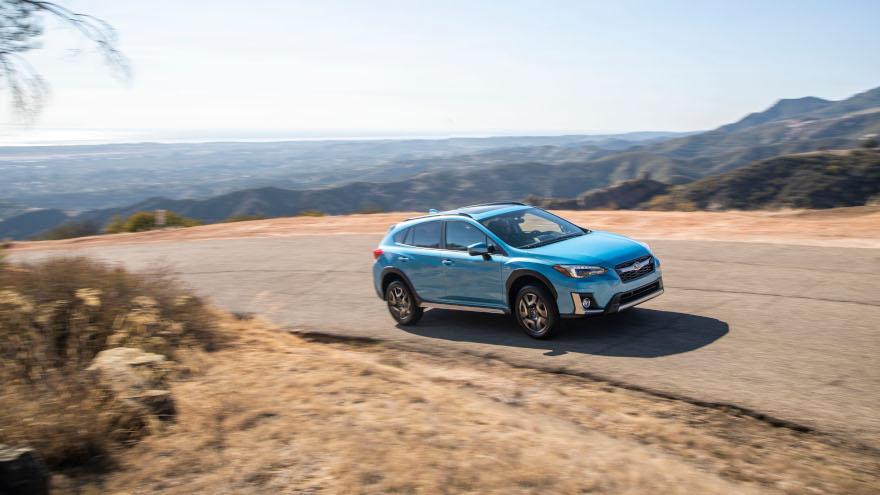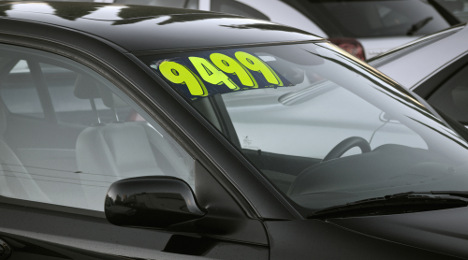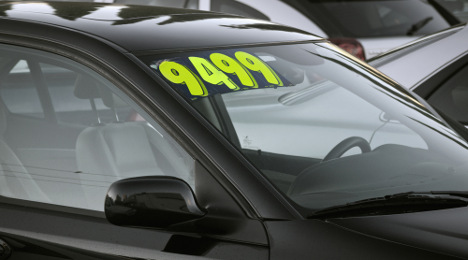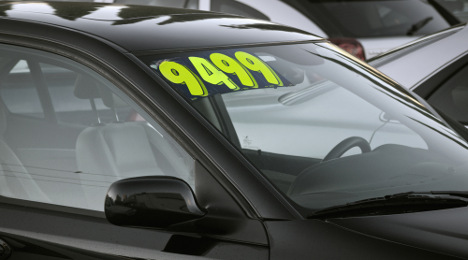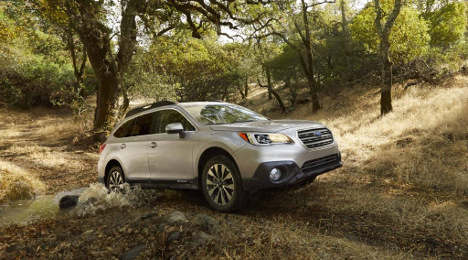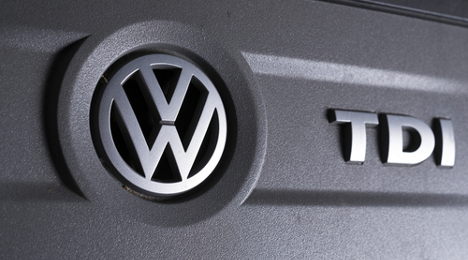In areas such as collective health of a brand, how well the brand manages new-vehicle transaction prices, and incentives against used-vehicle values and remarketing strategies, Subaru and Land Rover continue to perform well.
That is at least the case for ALG’s 2019 Canadian Residual Value Awards.
For the fifth year in a row, ALG recognized Subaru as the top mainstream brand. Land Rover won the Residual Value Award for Premium Brands for the fourth time.
ALG, a future vehicle values forecasting company that is the analytics subsidiary of digital automotive marketplace, TrueCar, determined the award winners by analyzing used-vehicle performance, brand outlook and product competitiveness.
To be eligible for a brand award, a manufacturer must have vehicle entries in at least four different segments. The awards account for differences across trim levels, with model averages weighted based on percentage share relative to the entire model line.
Land Rover won an award in three of the premium segments with the Range Rover Sport, Range Rover and Discovery. For mainstream brand, Subaru captured awards in four vehicle segments with the Impreza, Crosstrek, Outback and WRX.
Below is the full list of 2019 RVA winners in Canada:
RVA overall brand, mainstream: Subaru
RVA overall brand, premium: Land Rover
RVA Segment:
Mainstream cars
Microcar: Nissan Micra
Electric: Chevrolet Bolt
Subcompact: Honda FIT
Compact: Subaru Impreza
Midsize: Honda Accord
Full-size: Toyota Avalon
Sports car: Subaru WRX
Mainstream utility
Subcompact utility: Subaru Crosstrek
Compact utility: Honda CR-V
Midsize utility, 2nd row seating: Subaru Outback
Midsize utility, 3rd row seating: Honda Pilot
Full-size utility: Toyota Sequoia
Off-road utility: Jeep Wrangler
Trucks
Full-size pickup: Toyota Tundra
Midsize pickup: Toyota Tacoma
Premium cars
Premium compact: Mercedes-Benz CLA
Premium midsize: Infiniti Q50
Premium full-size: Genesis G80
Premium executive: Mercedes-Benz S-Class
Premium sports car: Jaguar F-Type
Premium utility
Premium compact utility: Volvo XC60
Premium midsize utility 2nd row seating: Land Rover Range Rover Sport
Premium midsize utility 3rd row seating: Land Rover Discovery
Premium full-size utility: Land Rover Range Rover
Vans
Minivan: Honda Odyssey
Midsize commercial: Mercedes-Benz Metris
Full-size commercial: Mercedes Benz Sprinter
Off-lease used-vehicle supply continues to ramp up — both in Canada and the U.S. — but this increase isn’t being illustrated in any softening of used-vehicle price movement yet, at least not up North.
According to Canadian Black Book’s Used Vehicle Retention Index for Canada, this past February marked the highest index level for the month since CBB began tracking in 2005. The reading of 102.5 is up 2.5 percent year-over-year.
The segments with the strongest price strength last month compared to February 2017 were the compact cars, up 6.1 percent from the same month of 2017; and the subcompact segment, up 6 percent. Interestingly, according to CBB, these segments had previously “been under significant downward price pressure,” yet recently, the tides have turned.
On the other side of the spectrum the minivans (down 5.3 percent year-over-year) and the full-size pickups (down 2.2 percent year-over-year) saw the biggest year-over-year price drops last month.
The biggest movers month-over-month were the sports cars, with a 1.5-percent bump — perhaps a sign of approaching spring — and the midsize cars, with a spike of 1.5 percent.
The largest drops seen from January rates were once again in the minivan segment, with a 1.7-percent decline, and the small pick-up trucks, which dropped by 1.4 percent.
The Canadian Black Book Used Vehicle Retention Index is calculated using Canadian Black Book’s published wholesale average value on two- to six-year-old used vehicles, as a percent of original typically-equipped MSRP.
Are Canadian auto sales headed for ‘softening’?
And even as used supply continues to grow, Canadian Black Book also released recent analysis that shows Canadian auto sales might be headed toward a bit of a dip.
Even though the CBB poll research shows that 51 percent of Canadian automotive consumers are expected to purchase a vehicle over the next two years, apparently the numbers show that those surveyed last year were 11 percent more likely to buy soon. Last year was also a record year for Canadian automotive sales.
This is the third year in a row CBB has designed a poll, conducted by Ipsos to gauge Canadian car buying habits, knowledge and trends. This year’s edition surveyed 1,255 Canadians from coast to coast.
CBB shared the decrease in expectant buyers might suggest that forecasts of slowing auto sales might be coming to fruition. But that’s to be expected, analysts say, with the past few years of record breaking sales.
“Quite frankly, after such a dramatic ascent in sales over the past couple of years, this makes sense. It would be hard for us to continue breaking sales records throughout 2018 and beyond,” says Brad Rome, president of Canadian Black Book.
Used-car prices are on the rise in Canada.
According to its latest Market Update report, RVI Group’s Used Vehicle Price Index was up 3.2 percent in September versus a year ago, and 3.3 percent from August.
Adjusting for inflation, the index was up 2.7 percent both sequentially and year over year.
RVI’s Used Vehicle Price Index, which started at 1.0 in January 2001, measures the wholesale values of used cars 2 years old to 5 years old adjusted for mileage, mix and seasonality.
The index sat at 0.969 in September.
Roughly half of the vehicle segments RVI tracks saw a decline in residual values on a year-over-year basis. Full-size sedan prices were down by 21.8 percent, while luxury full-size sedan prices were down 6.4 percent.
Several segments fared better than the average depreciation of 3.2 percent:
—Luxury SUVs, 1 percent
—Midsize SUVs, 0.8 percent
—Luxury midsize sedans, 0.7 percent
—Small SUVs, 0.2 percent
—Luxury small sedans, 0.3 percent
—Small pickups, 1.2 percent
—Sporty coupes, 2.1 percent
—Full-size vans, 2.8 percent
When looking at September depreciation relative to August, full-size sedans saw the biggest monthly loss at 27 percent. Eight segments fared better than the industry average of 3.3 percent:
—Full-size pickup, 1.4 percent
—Compact car, 2.9 percent
—Luxury SUV, 2.6 percent
—Midsize SUV, 2.9 percent
—Luxury midsize sedan, 2.1 percent
—Luxury small sedan, 1.4 percent
—Full-size van, 0.7 percent
—Small sedan, 0.1 percent
The report noted that gas prices rose to $1.05/liter in September — an increase of 1.6 percent from August and a 2.3-percent decrease from September 2015.
The exchange rate stood at $0.76 CAD/USD in September, a 0.8-percent decrease from August. When compared to September 2015, the exchange rate has increased by 1.2 percent.
Used-car prices were up year-over-year in August, but it’s not expected to continue.
And while RVI Group predicts that used prices will be up 0.2 percent in 2017 relative to current levels, a meaningful drop in prices is expected to start in 2018.
In its September Risk Outlook report, RVI predicted that a growing supply of off-lease vehicles coupled with a strengthening Canadian dollar would push used-car prices down 10.5 percent below current levels by 2020.
The exchange rate in August was $0.77 USD/CAD, unchanged from the prior month, but up almost 10 cents from an early year low.
Real used-car prices (adjusted for inflation) increased 0.3 percent year-over-year in August, but they decreased 2.8 percent compared to July.
Of the 17 segments RVI tracks in Canada, seven saw a year-over-year price decrease; five of those were high-volume segments. Of those higher volume segments, small SUVs saw the sharpest year-over-year price drop at 7.1 percent. Minivan prices, on the other hand, increased 11.1 percent year over year.
And of those 17, 12 saw a monthly decrease; seven of those were high-volume segments. Of those higher volume segments, small SUVs saw the sharpest monthly price drop at 11.3 percent. Compact car prices, on the other hand, were up 3.3 percent over July.
A lower-volume segment — small pickup trucks — saw the steepest month-to-month and year-over-year declines at 38.2 percent and 26.5 percent, respectively. Prices for full-size sedans, however, were up 3.9 percent and 15.5 percent, respectively.
For its Canadian forecast, RVI focuses on supply of off-lease vehicles in the North American market. In August, its Lease Supply Index increased by 23.7 percent from a year ago.
The report noted that new vehicle sales have been strong thus far in 2016, with an average 1.93 million units (SAAR) sold per month.
Eleven of the 18 vehicle segments tracked by RVI Group saw increases in residual value in June on a year-over-year basis, according to the latest Market Insight report. Sequentially, that number was 12.
Among higher-volume segments, larger-size vehicles saw the biggest year-over-year increases, led by full-size pickups (up 8.7 percent) and minivans (up 7 percent).
Among lower-volume segments, year-over-year increases were highest for luxury full-size sedans (up 28.7 percent over last June) and full-size SUVs (up 18.3 percent).
Among higher-volume segments, small SUVs saw the greatest increase from May to June (8.5 percent), while among lower-volume segments, full-size sedans enjoyed a 30.5 percent monthly increase.
“The Canadian used-car market has experienced very favorable conditions, especially over the past 12 months,” Wayne Westring, manager for RVI Analytical Services at RVI Group, said in an email to Auto Remarketing Canada.
“Low exchange rates, which have increased since the beginning of the year but still remain low, combined with low off-lease supply, continues to give a bounce to wholesale values,” he said.
RVI’s used-car price index in June was at the highest level seen since the early 2000s.
The index — which measures wholesale values of used cars that are 2 to 5 years old, adjusted for mileage, mix and seasonality — stood at 0.948 in June, which was a 1.9-percent increase over May and a 3.8-percent increase from June 2015.
Without adjusting for inflation, the index increased 3.3 percent on a sequential basis in June, and 4.5 percent year over year.
Gas rose to $1.10/liter in June, up 4.7 percent over May but down 7.6 percent from last June’s $1.19.
Also in June, the exchange rate rose to $0.78 CAD/USD, a 0.4-percent increase from May and a 4.1-percent decrease over last June.
Looking ahead to the remainder of 2016, Westring said he expects used car values to remain about where they are now thanks to favorable exchange rates and off-lease supply.
“But beginning in 2017,” he said, “we expect values to begin declining as exchange rates and used car supply are expected to increase.”
Used-car prices in Canada were up on both a sequential and year-over-year basis in May, but that’s not expected to last, according to a report from RVI Group.
In its most recent quarterly Risk Outlook report, RVI predicts that a growing supply of off-lease vehicles combined with a strengthening Canadian dollar will depress used-car prices by 16.5 percent by 2019.
Used-car prices increased 1.9 percent in May, and are up 2.8 percent compared to the same time last year. But RVI predicts they will be down 7.7 percent year-over-year in 2017 and 13.6 percent in 2018 before hitting the -16.5 percent mark in 2019.
“As far as lease supply versus the foreign exchange rate, we see this having similar impacts downward on future used car prices,” Wayne Westring, manager for RVI Analytical Services, said in an email. “The bigger impact of the two will be the growing off-lease supply. Over the last year, Canada has seen favorable exchange rates and low off-lease supply that have contributed to year-over-year increases, especially for larger vehicles as gas prices have remained low.
“Because of this,” he continued, “there has been a considerable amount of grey market activity for pickups, SUVs and luxury vehicles. But in the coming years, RVI expects the Canadian dollar to strengthen, off-lease supply to drastically increase and grey market activity to dissipate. This will place pressure on used car values beginning in 2017.”
The U.S. to Canadian exchange rate fell to $0.77 USD/CAD in May, a 5.8-percent decrease from last May. But the Canadian dollar is expected to strengthen, with that rate expected to be $0.86 by next year.
Meanwhile, RVI’s lease-supply index, which focuses on the supply of off-lease vehicles in the North American market, increased by 20 percent from last year.
Segment-specific highlights
Among higher-volume segments, used full-size pickup prices were up 8.1 percent in May on a year-over-year basis and 2.0 percent over April. By 2019, prices for full-size pickups are expected to be down 33.9 percent from current levels — the steepest three-year decline of 18 segments.
Small SUV prices were down 6.3 percent over last May and 13 percent on a month-to-month basis. By 2019, prices in this segment are expected to be down 16 percent over current levels.
Among lower-volume segments, prices for luxury full-size sedans were up 35.8 percent in May on a year-over-year basis, with prices expected to drop 37.1 percent over current levels by 2019. Prices for full-size sedans were down 10.6 percent in May on a year-over-year basis, with prices expected to be down 11.6 percent over current levels by 2019.
ALG announced winners of its eighth annual Canadian Residual Value Awards on Wednesday with Subaru and Land Rover taking top honors for mainstream brand and premium brand, respectively.
Analysts highlighted that Subaru repeated as the top-ranking marque among mainstream brands, claiming a total of three segment awards. The haul included the Subaru Outback, a perennial winner in the midsize utility (two-row) segment.
ALG noted that an all-wheel-drive strategy coupled with disciplined incentive spending continues to be the driving forces behind Subaru’s high residual values.
Land Rover’s top ranking among premium manufacturers marks the OEM’s second consecutive win.
Analysts explained that consumer demand for Land Rover products has increased following a newly expanded lineup and enhanced luxury amenities, resulting in limited incentive spending and high residual values. Land Rover models also won in two segments this year: Range Rover Sport and Discovery Sport.
Among mainstream brands, Toyota edged out Honda with a total of five segment awards, including the Tundra pickup truck’s seventh and the Tacoma’s sixth consecutive residual value award. Honda received segment awards for four of its models, including the redesigned Honda Pilot in the midsize utility (three-row) segment.
Other highlights include: The all-new Nissan Maxima’s top ranking in the full-size car segment, the Porsche Panamera’s first award for Porsche Cars Canada in the premium executive car segment, and the highly anticipated Mercedes-AMG GT S’s top ranking in the premium sports car segment.
ALG’s Canadian Residual Value Awards (RVA) recognize vehicles in 27 segments, ranging from city car to full-size commercial van, that are projected to retain the highest percentage of their manufacturer’s suggested retail price (MSRP) after a four-year period for mainstream brands and three-year period for premium brands.
This year’s recipients were chosen from 2016 model year vehicles that have shown strong value in their competitive segments. The awards will be presented to automakers this week at the Toronto Auto Show.
“Depreciation is the single biggest cost of vehicle ownership, and informed consumers understand the importance of resale value when making their purchase decision,” said Jim Nguyen, executive vice president and general manager of ALG.
“The ALG Residual Value Award is a meaningful achievement in the hyper-competitive automotive landscape,” Nguyen continued. “Residual values are a key indicator for the market success of a vehicle, factoring in quality, product execution and brand desirability as primary drivers of ALG’s forecast.”
Below is the full list of 2016 RVA winners:
RVA Overall
Mainstream Brand: Subaru
Premium Brand: Land Rover
RVA Mainstream
City Car: Nissan Micra
Subcompact Car: Nissan Versa Note
Compact Car: Subaru Crosstrek
Midsize Car: Honda Accord
Full-size Car: Nissan Maxima
Sports Car: Subaru WRX
Alt-Fuel Vehicle: Toyota Prius v
Minivan: Honda Odyssey
Subcompact Utility Vehicle: Kia Soul
Compact Utility Vehicle: Honda CR-V
Midsize Utility Vehicle – 2 Row: Subaru Outback
Midsize Utility Vehicle – 3 Row: Honda Pilot
Full-size Utility Vehicle: Toyota Sequoia
Off-Road Utility Vehicle: Toyota 4Runner
Midsize Pickup: Toyota Tacoma
Full-size Pickup: Toyota Tundra
Midsize Commercial Van: Ford Transit Connect
Full-size Commercial Van: Mercedes-Benz Sprinter
RVA Premium Segment
Premium Compact Car: MINI Cooper
Premium Midsize Car: Acura TLX
Premium Full-size Car: Hyundai Genesis
Premium Executive Car: Porsche Panamera
Premium Sports Car: Mercedes-AMG GT S
Premium Compact Utility Vehicle: Land Rover Discovery Sport
Premium Midsize Utility Vehicle – 2 Row: Land Rover Range Rover Sport
Premium Midsize Utility Vehicle – 3 Row: Lexus GX
Premium Full-size Utility Vehicle: Mercedes-Benz G-Class
Looking at the most recent data available, 2015 was a strong year for residuals in Canada.
According to the RVI Group’s RVI Risk Outlook for December, the strong U.S. dollar helped maintain those high residual values in Canada through the end of November, with real used-car prices, after adjusting for MSRP, up 4.9 percent over the previous month and up 8 percent year-over-year by the end of November.
But RVI is expecting a softening in the coming years, mostly due to a growing supply of used vehicles alongside “the potential for the USD and CAD exchange rate to increase.”
Over the next five years, RVI expects to see a softening in used-vehicle prices as their supply is forecasted to increase through 2019. By 2018, RVI’s prediction is that used vehicle prices will fall by 8 percent compared to their current levels.
Here are a few other Canadian economic overviews, according to RVI, at the end of November:
- In November, the exchange rate was $0.75 USD/CAD
- Gas prices averaged $1.03/liter (a 12 percent decline from November 2014)
- After two quarters of contraction, Canada’s GDP growth in Q3 was 2.4 percent
The Manheim Canada used-vehicle price index increased by a tad bit over 2 points from November, marking a year-over-year increase of 21.2 points. According to Manheim, the month’s increases were mostly powered by an increase in mid-size and SUV values (4.9 and 3.8 points, respectively). Sports cars decreased by 17 points while pickups saw a 4-point decrease.
Volkswagen Canada kicked off December with a nationwide apology campaign, utilizing ads featured in over 100 newspapers across the country as well as a digital campaign to apologize to the Canada’s Volkswagen owners for the company’s damaged reputation following the diesel scandal uncovered earlier this year that is still not entirely fleshed out.
Thomas Tetzlaff, VW Canada’s manager of media relations, spoke with Auto Remarketing Canada to help clarify the situation, saying that the point of the message was not only to apologize to the Canadian VW ownership and fanbase, as well as VW dealers, but also to thank them.
“The campaign explains the impact of this situation on our proud legacy, values and trust in the Volkswagen brand,” Tetzlaff said. “We take great pride in the base of support we have built in Canada and felt we owed it to our employees, dealers and customers to publicly acknowledge the damage done to Volkswagen’s relationship with Canadians and to declare our full commitment to restoring faith in our brand. We hope that our customers will go to our microsite for additional information, and to register directly with us so as to facilitate further communication about this issue. By registering at the site, affected TDI owners will initiate the process to receive our appreciation package.”
Tetzlaff said that the package is not intended as “compensation,” but more as a sincere “thank you” for customers and dealers maintaining their patience while the company works on a remedy for the vehicles alongside regulators.
Similar to the deal offered in the United States, the VW Canada said the “thank you” package includes:
- A $500 pre-paid credit card for use anywhere credit cards are accepted
- A $500 dealer credit, which can be used at the Volkswagen dealer of their choice for service, parts, accessories or as payment towards a car purchase
- 3 years of complimentary roadside assistance (an added three years for customers that still have their “original” roadside package in place)
“Thus far, we have received positive feedback from our customers, many of whom have already registered on the site,” Tetzlaff said. “We are hoping to reach as many of our affected owners as possible, as this will improve the flow of information, and will expedite the repair process when it has been established.”
Canadians are turning toward the truck and SUV market more and more when looking for their next vehicle, a trend which in turn is helping keep retained value up for these segments.
That, and of course, the ever-present reality of tight used supply.
Year-to-date data on retained value for 4-year-old vehicles provided to Auto Remarketing Canada by Canadian Black Book shows that values remain the strongest among the larger segments.
Full-size trucks, in particular, have outperformed the rest of the market this year, and Josh Bailey, Canadian Black Book editorial director, pointed out “there has been virtually no depreciation through the year” for this segment.
Here’s why:
“This is the hottest U.S. export item, and used pickups are still a hot item on Canadian dealers’ lots too,” said Bailey. “Without a drop in pick-up demand in the U.S. or a change in the exchange rate there is not likely going to be a change in prices soon.”
The full-size pickups ended November with a retained value rate of 52.80, after starting the year at 49.29 percent.
The lowest this segment dropped has dropped this year was in March, when rates fell to 48.72 percent. From June through November, retained values stayed above 50 percent for full-size pickups. Small pickups are seeing similar price movement and finished November with retained value of 49.01 percent.
The full-size luxury SUV segment is also worth mentioning, as its value has stayed above 50 percent all year, coming in at 50.98 percent for in November.
On the other hand, many of the car segments make up the worst-performing group of segments, as far as retained value is concerned.
Full-size cars have seen some of the lowest value rates this year, bottoming out at 32.06 percent in November. The subcompact car segment is also seeing prices suffer, dropping to 34.63 percent in November after starting the year off with retained value of 41.90 percent.
Similar trends also show up in RVI’s Used Vehicle Price Index forecast. RVI expects the full-size SUV segment to end the year with prices elevated 11.9 percent over 2014 rates, while small SUVs are expected to see a 14.5-percent year-over-year spike. And small pickup prices are expected to end the year with prices elevated by 19.7 percent year-over-year.
Editor's Note: The full edition of this residual analysis article will run in the upcoming Auto Remarketing Canada Digital Magazine. The November/December issue is our Wholesale edition and will feature analysis on auction values, supply, exports and more. Expect the issue to hit your inboxes Dec. 2.

